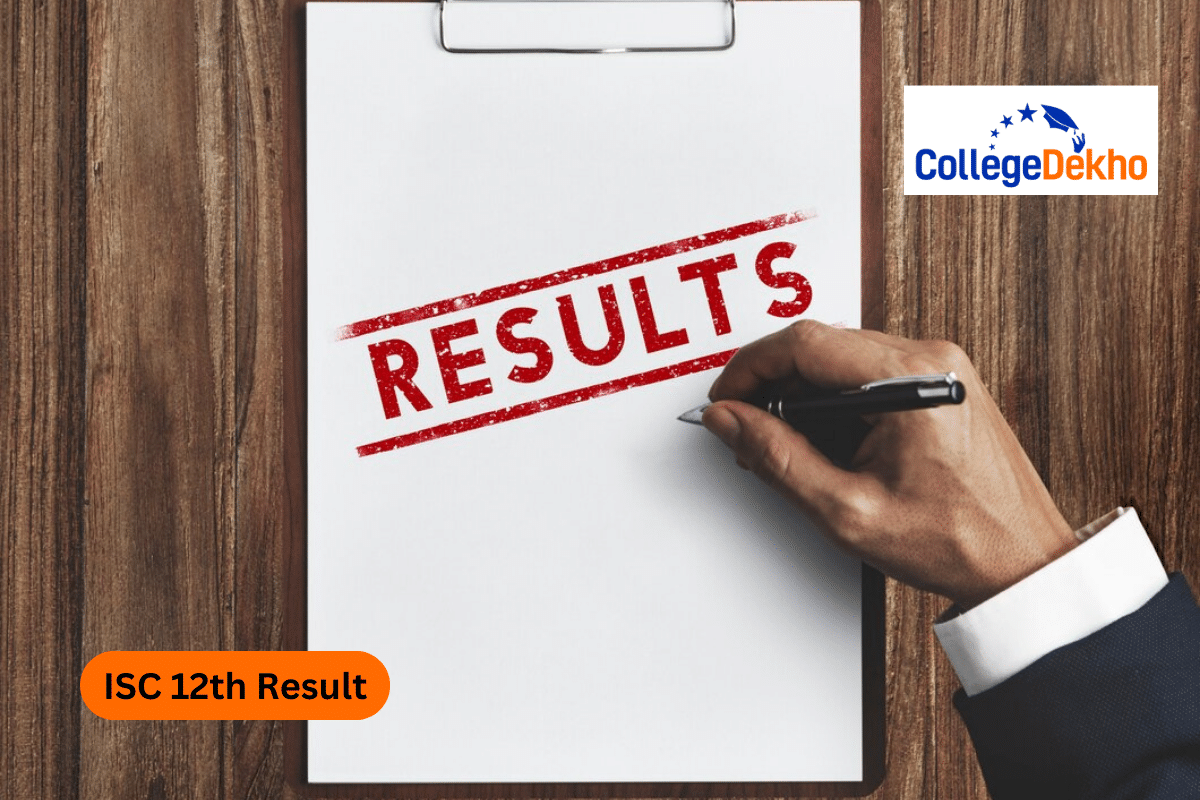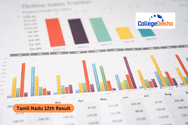- About Goa HSSC Syllabus 2024-25
- Goa HSSC Latest Updates 2025
- Goa HSSC Syllabus 2024-25: PDF
- How To Download Goa HSSC Syllabus 2024-25?
- Goa HSSC Syllabus 2024-25: Accountancy
- Goa HSSC Syllabus 2024-25: Business Studies
- Goa HSSC Economics Syllabus 2024-25
- Goa HSSC Syllabus 2024-25: Chemistry
- Goa HSSC Syllabus 2024 25: Biology
- Goa HSSC Syllabus 2024 25: Physics
- Goa Board 12th Syllabus 2024-25: English
- Goa HSSC Syllabus 2024-25: Math
- Goa HSSC Syllabus 2024-25: Political Science
- Goa HSSC Syllabus 2024-25: Geography
- Goa HSSC Syllabus 2024-25: Preparation Tips
- Faqs


Never Miss an Exam Update
About Goa HSSC Syllabus 2024-25
The syllabus is now available on the official website of
Goa HSSC Board 2025
. Most theory papers for Goa HSSC students are conducted for 70 marks and 30 marks will be provided for the practical exams. Students are required to get 33% marks to pass the board exams. The duration of the theory papers will be three hours. The theory paper consists of MCQs along with very short answer type questions, short answer type questions, and long answer type questions. Students can now download the latest curriculum by visiting the official website of the Goa Board of Secondary And Higher Secondary Education. Students must also download the latest
Goa HSSC Exam Pattern 2024-25
.
Students should thoroughly review the complete Goa Board HSSC Syllabus 2024-25 to enhance their preparation for the Goa Board 12th Examinations 2025. The syllabus covers key topics and chapters across the Science, Commerce, and Arts streams. According to the Goa HSSC timetable, the exams are scheduled to take place from February 10 to February 28, 2025. The Goa Board of Secondary and Higher Secondary Education has announced that term-wise exams will no longer be conducted from the academic year 2023-24 onwards. Check out more information about the Goa HSSC Syllabus 2024-25 here:
Goa HSSC Latest Updates 2025
- March 26, 2025: The Goa Board HSSC Result 2025 will be released tomorrow, March 27, 2025 at 5 PM according to the official reports; a total of 18,000 students appeared for the Goa HSSC exam 2025.
Goa HSSC Syllabus 2024-25: PDF
Students can download the official PDF released by the Goa Board of Secondary And Higher Secondary Education on the official website. You can check out the table given below to download the PDF according to the different subjects:
Subjects | PDF Link |
|---|---|
English | |
Geography | |
Political Science | |
Accountancy | |
Economics | |
Business Studies | |
Physics | |
Chemistry | |
Biology | |
Computer Science | |
Mathematics |
How To Download Goa HSSC Syllabus 2024-25?
The official PDFs of the syllabus are uploaded on the website of the Goa Board of Secondary And Higher Secondary Education. Students can download the Goa Board HSSC Class 12 Syllabus 2024-25 PDF by following the simple procedure given below:
- Step 1: Visit the official website of the Goa Board of Secondary And Higher Secondary Education at gbshse.in
- Step 2: The home page will open on this screen and you have to click on the Students tab present on the menu bar.
- Step 3: A drop-down menu will open on your screen where you have to click on the option called Study Material 2025
- Step 4: The list of subjects will open on your screen. You can download the syllabus according to the subject of your choice.
Goa HSSC Syllabus 2024-25: Accountancy
If you have chosen the Accountancy syllabus then you can check out the major information about the Goa HSSC Syllabus 2024-25 for Accountancy subject from the table given below:
Unit | Topics |
|---|---|
Unit 1: Accounting for Partnership: Basic Concepts | • Partnership: Definition, features, Partnership Deed. • Provisions of the Indian Partnership Act 1932 in the absence of Partnership Deed. • Fixed vs. fluctuating capital accounts. Preparation of Profit and Loss Appropriation account - division of profit among partners, guarantee of profits (only theory). • Goodwill: nature, factors affecting and methods of valuation – average profit, super profit, and theory concept of capitalization method. |
Unit 2: Reconstitution of Partnership | • Admission of a partner – Effect of admission of a partner on change in the profit-sharing ratio, Sacrifice ratio & New profit-sharing ratio. Treatment of goodwill (as per AS 26), treatment for revaluation of assets and reassessment of liabilities, treatment of reserves, and accumulated profits, Capital adjustments. • Retirement and death of a partner: Effect of retirement/death of a partner on change in profit-sharing ratio, Gaining ratio & New Profit sharing ratio. Treatment of goodwill (as per AS 26), treatment for revaluation of assets and reassessment of liabilities, adjustment of accumulated profits and reserves, Capital adjustments. • Calculation of outgoing partner’s share of profit till the date of retirement/death. • Preparation of outgoing Partner’s Loan Account/Executor’s Loan Account. |
Unit 3: Dissolution of Partnership Firm | • Dissolution of a partnership firm: Meaning of dissolution of partnership and partnership firm, types of dissolution of a firm. • Settlement of accounts – preparation of realization account, and other related accounts: capital accounts of partners and cash/bank a/c (excluding piecemeal distribution, sale to a company, and insolvency of partners). |
Unit 1: Accounting for Shares | Accounting for Share Capital • Share and share capital: nature and types. • Accounting for share capital: issue and allotment of equity and preferences shares. Public subscription of shares – over subscription and under subscription of shares; issue at par and at a premium, calls in advance and arrears, issue of shares for consideration other than cash. • Accounting treatment of forfeiture and reissue of shares. • Disclosure of share capital in the Balance Sheet of a company (not for evaluation). |
Unit 2: Issue of Debentures | • Meaning of Debentures; nature and types, Distinction between Shares & Debentures. • Issue of debentures at par, at a premium, and at a discount. Issue of debentures for consideration other than cash; debentures as collateral security concept. |
Unit 3: Financial Statements of a Company | • Financial statement of a Company: Meaning; Nature; Objectives; Importance/Significance and Limitations. a) Preparation of Statement of Profit and Loss in prescribed form with major headings and subheadings. b) Preparation of Balance Sheet in prescribed form with major headings and subheadings. |
Unit 4: Analysis of Financial Statements | • Financial Analysis: Meaning, Significance and Purpose, Limitations. • Tools for Financial Analysis: Comparative statements, Common size statements. |
Unit 5: Accounting Ratios | • Meaning and Objectives, Types of ratios: Liquidity Ratios: Current ratio, Liquidity ratio. Solvency Ratio: Debt to equity, Total assets to debt, Proprietary ratio. Activity Ratio: Inventory Turnover, Trade Receivable Turnover, Trade Payables Turnover, and Working Capital Turnover Ratios. Profitability Ratio: Gross profit, Operating ratio, Operating profit ratio, Net profit ratio, and Return on Investment. |
Unit 6: Cash Flow Statement | • Meaning and Objectives, Preparation, Adjustments related to depreciation, dividend, and tax, sale and purchase of non-current assets (as per revised standard issued by ICAI). |
Goa HSSC Syllabus 2024-25: Business Studies
Students can check out the syllabus for Business Studies subject from the table given below and it will help them to prepare for the board exams accordingly:
Unit | Topics |
|---|---|
UNIT 1. NATURE AND SIGNIFICANCE OF MANAGEMENT | (a) Management—Meaning, Definition, Features and Effectiveness vs. Efficiency. (b) Objectives -Organisational-Survival, Profit and Growth, Social objectives and Personal objectives. (c) Importance /Significance of Management. (d) Nature of management - Art, Science and Profession—Meaning and features. (e) Levels of Management - Concept and functions. (f) Management Functions-Planning, Organising, staffing, Directing and Controlling. (g) Coordination- Meaning and Features/Characteristics. |
UNIT 2. PRINCIPLES OF MANAGEMENT | (a) Principles of Management- Meaning, Nature of principles of management. (b) Significance/Importance of principles of management. (c) Taylor’s Scientific Management—Meaning and Principles of Scientific Management. Techniques of Scientific management- Functional Foremanship, Standardisation of work, Simplification of work, techniques of scientific work study (Fatigue, Method, Time and Motion study), Differential Piece Wage System. (d) Henri Fayol’s principles of General Management. |
UNIT 3. BUSINESS ENVIRONMENT | (a) Business Environment—Meaning and Definition. (b) Significance/ Importance of Business Environment. (c) Dimensions of Business Environment-Economic, Social, Technological, Political and Legal. (d) Demonitisation-Meaning and features. |
UNIT 4. PLANNING | (a) Planning- Meaning, Definition and Features. (b) Importance/Significance of Planning. (c) Limitations of Planning. (d) Planning process- Steps. (e) Types of Plans: -Single use Plan, Standing Plan, Objective, strategy, Policy, Procedure, Method, Rule, Budget and Programme. |
UNIT 5. ORGANISING | (a) Organising—Meaning, Definitions and Importance of Organising. (b) Steps in the process of Organising. (c) Organisational Structure-Meaning: Types of Organisational Structure: Functional and Divisional Structure-Meaning and Merits. Formal and Informal Organisation-Meaning. (d) Delegation of Authority—Meaning and Elements(Authority, Responsibility and Accountability) and importance of delegation. (e) Decentralisation of Authority—Meaning and Importance. |
UNIT 6. STAFFING | (a) Staffing-Meaning, and Definition. (b) Importance of staffing. (c) Staffing as a part of Human resource Management—Duties and Functions. (d) Staffing Process-Steps in the process of Staffing (Steps as per NCERT book). (e) Aspect/ Components of staffing: I. Recruitment-Meaning, Internal sources and external sources of recruitment. II. Selection-Meaning and Selection process. III. Training and Development- Meaning, Types of training Apprenticeship, Vestibule and internship training and Importance /benefits of training to the organisation and to the employees. |
UNIT 7. DIRECTING | (a) Directing- Meaning and Importance of Directing. (b) Elements of Directing: I. Motivation- Meaning, Maslow’s Need Hierarchy Theory of Motivation, Types of Financial and non-financial incentives. II. Leadership- Meaning and Styles of leadership-Autocratic leadership, Democratic Leadership and Laissez faire leadership. III. Communication- Meaning, Meaning of Formal and Informal communication, Barriers in the process of communication and Improving communication effectiveness /How to overcome barriers of communication. |
UNIT 8. CONTROLLING | (a) Controlling-Meaning, definition and Features. (b) Importance of controlling. (c) Steps in the process of Controlling. |
UNIT 9. FINANCIAL MANAGEMENT/BUSINESS FINANCE | (a) Financial Management—Meaning. (b) Objectives of Financial management. (c) Financial decisions- Investment, Financing and Dividend decisions -Meaning. (d) Financial Planning- Meaning and importance of Financial Planning. (e) Financial Structure- Meaning and factors determining the capital structure. (f) Fixed capital- Meaning and factors determining requirement of fixed capital. (g) Working capital- Meaning and factors determining requirement of working capital. |
UNIT 10. MARKETING | (a) Meaning of Marketing. (b) Marketing Management- Meaning, Definition and Functions. (c) Marketing Management Philosophies. (d) Marketing Mix-Product, Price, Place (Physical distribution) and Promotion. |
UNIT 11. CONSUMER PROTECTION | (a) Consumer Protection-Concept and Importance of consumer protection from consumer point of view and business point of view. (b) Meaning of Consumer and Consumer Protection Act 2019. (c) Rights and Responsibilities/Duties of consumers. (d) Who can file a complaint and against whom? (e) Redressal agencies under Consumer Protection Act. (f) Reliefs/Remedies available to a consumer. (g) Consumer Awareness-Role of a consumer Organisation. |
Goa HSSC Economics Syllabus 2024-25
Students can refer to the chapters coming in the syllabus for Economics from the pointers given below:
- Introduction And Consumer Behaviour
- Theory Of Demand And Elasticity Of Demand
- Producer Behaviour And Supply
- Forms Of Market And Price Determination
- National Income And Related Aggregates – Basic Concepts & Measurements
- Determination Of Income & Employment
- Money And Banking
- Government Budget And Balance Of Payments
Goa HSSC Syllabus 2024-25: Chemistry
Students can check out the Goa Board Syllabus for 12th Chemistry 2024-25 from the table given below and it will help them to prepare for the board exams accordingly:
- Solutions
- Electrochemistry
- Chemical Kinetics
- The D- & F-Block Elements
- Coordination Compounds
- Haloalkanes & Haloarenes
- Alcohols, Phenols And Ethers
- Aldehydes, Ketones And Carboxylic Acids
- Amines
- Biomolecules
Goa HSSC Syllabus 2024 25: Biology
Students can refer to the major information about the units and chapters included in the Biology syllabus from the table given below:
Chapter | Topics |
|---|---|
Chapter 2: Sexual Reproduction in Flowering Plants | Flower: A Fascinating Organ of Angiosperms, Pre Fertilization: Structure and Events, Double Fertilization, Post Fertilization Events: Structure and Events, Apomixis and Polyembryony |
Chapter 3: Human Reproduction | The Male Reproductive System, The Female Reproductive System, Gametogenesis, Menstrual Cycle, Fertilization and Implantation, Pregnancy and Embryonic Development, Parturition and Lactation |
Chapter 4: Reproductive Health | Reproductive Health Problems and Strategies, Population Explosion and Birth Control, Medical Termination of Pregnancy (MTP), Sexually Transmitted Diseases (STDs), Infertility |
Unit VII: Genetics and Evolution | |
Chapter 5: Principles of Inheritance and Variation | Mendel’s Laws of Inheritance, Inheritance of One Gene, Inheritance of Two Genes, Polygenic Inheritance, Pleiotropy, Sex Determination, Mutation, Genetic Disorders |
Chapter 6: Molecular Basis of Inheritance | The DNA, The Search for Genetic Material, RNA World, Replication, Transcription, Genetic Code, Translation, Regulation of Gene Expression, Human Genome Project, DNA Fingerprinting |
Chapter 7: Evolution | Origin of Life, Evolution of Life Forms A Theory, Evidences for Evolution, Adaptive Radiation, Biological Evolution, Mechanism of Evolution, Hardy Weinberg Principle, Evolution of Man |
Unit VIII: Biology in Human Welfare | |
Chapter 8: Human Health and Diseases | Common Diseases in Humans, Immunity, AIDS, Cancer, Drugs and Alcohol Abuse |
Chapter 10: Microbes in Human Welfare | Microbes in Household Products, Microbes in Industrial Products, Microbes in Sewage Treatment, Microbes in Production of Biogas, Microbes as Biocontrol Agents, Microbes as Biofertilizers |
Unit IX: Biotechnology | |
Chapter 11: Biotechnology Principles and Processes | Principles of Biotechnology, Tools of Recombinant DNA Technology, Processes of Recombinant DNA Technology |
Chapter 12: Biotechnology and its Applications | Biotechnological Applications in Agriculture, Biotechnological Applications in Medicine, Transgenic Animals, Ethical Issues |
Unit X: Ecology | |
Chapter 13: Organisms and Populations | Organism and its Environment, Populations |
Chapter 14: Ecosystem | Ecosystem – Structure and Function, Productivity, Decomposition, Energy Flow, Ecological Pyramids, Ecological Succession, Nutrient Cycling, Ecosystem Services |
Chapter 15: Biodiversity and its Conservation | Biodiversity, Biodiversity Conservation |
Goa HSSC Syllabus 2024 25: Physics
Students can check the Physics syllabus from the details mentioned below:
- Electric Charges and Fields
- Electrostatic Potential and Capacitance
- Current Electricity
- Moving Charges and Magnetism
- Magnetism and Matter
- Electromagnetic Induction
- Alternating Current
- Electromagnetic Waves
- Ray Optics and Optical Instruments
- Wave Optics
- Dual Nature of Matter and Radiation
- Atoms
- Nuclei
- Semiconductor Electronics: Materials, Devices and Simple Circuits
Goa Board 12th Syllabus 2024-25: English
English is one of the most important subjects included in the Goa Board Class 12th curriculum. Students can check out the details of the English Goa Board 12th Syllabus 2025 from the table given below:
- My Mother At Sixty-six
- An Elementary School Classroom in a Slum
- Keeping Quiet
- A Thing of Beauty
- FIGURES OF SPEECH: Simile; Metaphor; Personification; Alliteration; Repetition
- The Last Lesson
- Lost Spring
- Deep Water
- Indigo
- The Tiger King
- Should Wizard Hit Mommy?
- On The Face Of It
- Memories of Childhood
Goa HSSC Syllabus 2024-25: Math
You can check the details of the topics that will be coming in Math from the table given below. You can also check out the weightage of each topic and prepare yourself according to the Goa Board HSSC Syllabus 2024-25:
UNIT | TOPICS |
|---|---|
UNIT I: RELATIONS AND FUNCTIONS | 1. Relations and Functions: Types of relations (Reflexive, symmetric, transitive, equivalence), One-to-one and onto functions, Composite functions, Inverse of a function (concept). 2. Inverse Trigonometric Functions: Definition, range, domain, principal value branches, Graphs, Elementary properties. |
UNIT II: ALGEBRA | 1. Matrices: Concept, notation, order, equality, types of matrices, zero matrix, transpose, symmetric and skew symmetric matrices, Addition, multiplication, scalar multiplication, Non-commutativity, Invertible matrices, Uniqueness of inverse. 2. Determinants: Determinant of a square matrix (up to 3x3), Minors, Cofactors, Area of a triangle, Adjoint, Inverse, Consistency of systems of equations, Solving systems using inverse. |
UNIT III: CALCULUS | 1. Continuity and Differentiability: Continuity, differentiability, derivative of composite functions, Chain rule, Derivatives of inverse trigonometric functions, Implicit functions, Exponential, Logarithmic functions, Logarithmic differentiation, Parametric forms, Second order derivatives. 2. Applications of Derivatives: Rate of change, Increasing/decreasing functions, Maxima and minima (first and second derivative tests), Simple real-life problems. 3. Integrals: Integration as inverse of differentiation, Techniques (substitution, partial fractions, by parts), Definite integrals as limits, Fundamental Theorem of Calculus, Basic properties, Evaluation of definite integrals. 4. Applications of Integrals: Finding areas under curves (lines, circles, parabolas, ellipses), Area between curves. 5. Differential Equations: Definition, order, degree, general and particular solutions, Separation of variables, Homogeneous differential equations, Linear differential equations. |
UNIT IV: VECTORS AND THREE-DIMENSIONAL GEOMETRY | 1. Vectors: Vectors and scalars, Magnitude and direction, Direction cosines/ratios, Types of vectors, Position vector, Negative of a vector, Components, Addition, Scalar multiplication, Position vector dividing a line segment, Scalar (dot) product, Projection, Vector (cross) product. 2. Three-dimensional Geometry: Direction cosines/ratios of a line, Cartesian and vector equations of a line and plane, Coplanar and skew lines, Shortest distance between lines, Angle between lines, planes, and a line and plane, Distance from a point to a plane. |
UNIT V: LINEAR PROGRAMMING | Introduction, Constraints, Objective function, Optimization, Types of linear programming problems, Graphical method, Feasible and infeasible regions/solutions, Optimal feasible solutions (up to three non-trivial constraints). |
UNIT VI: PROBABILITY | Multiplication theorem, Conditional probability, Independent events, Total probability, Bayes’ theorem, Random variables, Probability distribution, Mean and variance, Binomial distribution. |
Goa HSSC Syllabus 2024-25: Political Science
If you have chosen the Arts stream then you can check out the syllabus for political science from the table given below:
Course | Chapters and Topics |
|---|---|
Book-I Contemporary World Politics | 1. Cold War Era in World Politics: Cuban Missiles Crisis, Cold War Definition, Emergence of Power Blocs, Non-Aligned Movement, New International Economic Order. 2. The End of Bipolarity: Gorbachev and Soviet Disintegration, Causes and Consequences, Shock Therapy (Concept and Consequences). 3. US Hegemony in World Politics: New World Order, 9/11 and Global War on Terror, Hegemony Concepts (Hard, Structural, Soft Power), India-USA Relations. 4. Alternative Centres of Power: European Union, ASEAN, Rise of the Chinese Economy. 5. Contemporary South Asia: South Asia Definition, Ethnic Conflicts and Democracy in Sri Lanka, India-Pakistan Conflicts. 6. International Organisations: Evolution of the UN, Permanent and Non-permanent Membership Criteria, India’s Claim for Permanent Security Council Membership, UN’s Position in a Unipolar World. 7. Security in Contemporary World: Definition of Security, New Threats, India’s Security Strategy. 8. Environment & Natural Resources: Global Environmental Concerns, India’s Environmental Policies, Resource Geopolitics, Indigenous Peoples’ Rights (India). 9. Globalization: Concept, Causes, Political, Economic, and Cultural Consequences. |
Book-II: Politics in India Since Independence | 1. Nation Building and its Problems: Challenges, Partition Process and Consequences, Integration of Princely States (Hyderabad, Manipur). 2. Era of One-Party Dominance: Democracy Building Challenges, Congress Dominance in First Three General Elections, Emergence of Opposition Parties. 3. Politics of Planned Development: Planning, Five Year Plans, Land Reforms, Green Revolution. 4. India’s External Relations: Nehru’s Role, Afro-Asian Unity, Chinese Invasion of 1962, Bangladesh War 1971, India’s Nuclear Policy. 5. Challenges to and Restoration of Congress System: Fourth General Elections 1967, Congress Split, Presidential Elections 1969, 1971 Election and Congress Restoration. 6. Crisis of the Democratic Order: Gujarat and Bihar Movements, Emergency Declaration, Lessons from Emergencies. 7. Rise of Popular Movements: Chipko Movement, Dalit Panthers, Bharatiya Kisan Union, Anti-Arrack Movement, Narmada Bachao Andolan. 8. Regional Aspirations and Conflicts: Punjab, North East States (Mizoram, Nagaland, Assam), Lessons from Regional Aspirations. 9. Recent Issues and Challenges: Political Rise of OBCs, Mandal Implementation, Political Fallouts. |
Goa HSSC Syllabus 2024-25: Geography
The following chapters are included in the Geography syllabus according to the latest curriculum PDF:
- Textbook (Part I) Fundamentals of Human Geography:
- Human Geography – Nature and Scope
- The World Population – Distribution, Density, and Growth
- Population Composition
- Human Development
- Primary Activities
- Secondary Activities
- Tertiary and Quaternary Activities
- Transport and Communication
- International Trade
- Human Settlements 11-16. Regional Geography of Goa – People and Economy
- Textbook (Part II) India – People and Economy:
- Population – Distribution, Density, Growth, and Composition
- Migration Types, Causes, and Consequences
- Human Development
- Human Settlements
- Land Resources and Agriculture
- Water Resources
- Mineral and Energy Resources
- Manufacturing Industries
- Planning and Sustainable Development in Indian Context
- Transport and Communication
- International Trade in India
- Geographical Perspective on Selected Issues and Problems
Goa HSSC Syllabus 2024-25: Preparation Tips
To get good marks in the board exams, students can follow the following Goa HSSC Preparation Tips 2025 :
- Students must work through a detailed study plan to get proper time slots allotted for each subject.
- Make sure to download the latest syllabus and exam pattern which are now listed on the official website of Goa Board of Secondary And Higher Secondary Education.
- Try to download the latest sample papers uploaded on the official website and solve them whenever you are done with your syllabus to evaluate yourself based on the answers that you have written.
- Focus on going to group studies with your friends so that you can solve the questions that you are not so confident in.
- Try to keep yourself healthy when board exams are about to be conducted. Focus on creating a healthy environment for yourself.
Goa HSSC Syllabus 2024-25 will help the students prepare for the board exams. Make sure to download the syllabus from the official website in PDF format.
FAQs
According to the Goa HSSC Exam Pattern 2025, students are required to obtain a minimum of 33% marks to pass the board exam. This minimum percentage applies to the aggregate marks scored by the student as well. In addition, students must score at least 28 out of 80 in the theory section.
Goa Board of Secondary & Higher Secondary Education is responsible for conducting the Goa HSSC Exams. The full form of HSSC is Goa Board Higher Secondary School Certificate Examination. HSSC exams will be conducted for class 12th students.
There are only minute changes in the Goa HSSC Syllabus 2024-25. Students can refer to the latest PDF by visiting the official website of the Goa Board of Secondary And Higher Secondary Education and use it to prepare for the board exam.
Students can download the official Goa HSSC Syllabus 2024-25 by visiting the website of the Goa Board of Secondary And Higher Secondary Education. The latest syllabus is now listed on the official website.
Was this article helpful?















